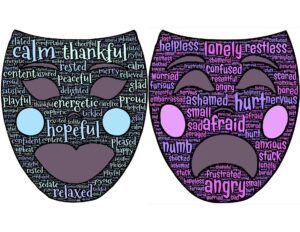Shadow Work: Claim Your Freedom of Expression
Shadow work comes from the concept of the shadow self, which originates in Jungian psychology.
According to Jung, a personality consists of the following:
a) the persona, which is the personality that people reveal to the public, and
b) the shadow self, which a person does not like to reveal.
One way to understand the shadow self is to think about the concept of the psyche, which includes both the conscious mind and the unconscious mind:
The conscious mind is the part of us that is aware and in control of our thoughts, feelings, and actions. It is the part of us that makes decisions and choices.
The unconscious mind, on the other hand, is the part of us that is not immediately available to our conscious awareness. It is the part of us that stores our memories, our emotions, and our unconscious thoughts and beliefs. This usually operates outside of awareness unless we have an insight or revelation.
The unconscious mind is often referred to as the “shadow,” because it is made up of the parts of ourselves that we have pushed into the shadows. This may be either because we are unaware of them or because we are avoiding dealing with them. These parts of ourselves can include our fears, our insecurities, our anger, our shame, and our repressed desires. However, they often also incorporate more positive qualities, such as our creativity, our compassion, and our sense of humor.
The collective unconscious also influences this shadow. The collective unconscious is a Jungian idea that refers to the collective memories and impulses of society as a whole. This means that the shadow self also includes racism, prejudice, and other systemic mindsets and responses.
Read More »Shadow Work: Claim Your Freedom of Expression
